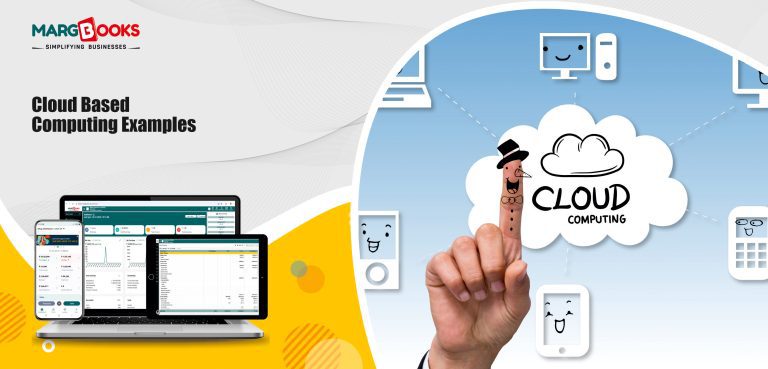In today’s fast-moving digital world, businesses are ditching traditional software systems and moving to smarter, faster, and more scalable solutions—yes, we’re talking about cloud computing. As we step into 2025, cloud-based computing isn’t just a buzzword anymore. It’s the backbone of modern businesses, from small startups to large enterprises.
Whether you’re an entrepreneur looking to scale your business or a curious learner trying to keep up with tech trends, understanding the latest cloud based computing examples can give you a clear edge. So, let’s dive into the world of cloud magic and see where the real action is happening!
What is Cloud Based Computing?
Before we get into examples, let’s take a moment to understand the basics. Cloud computing refers to delivering computing services—like storage, servers, databases, networking, software—over the internet (the “cloud”). Instead of maintaining your own data centres or servers, you access these services on a pay-as-you-go basis from providers like AWS, Microsoft Azure, or Google Cloud.
Sounds simple, right? But the real magic lies in how different industries are creatively using this technology.
Top Cloud Based Computing Examples in 2025
Here are some practical and popular cloud based computing examples that are shaping the way businesses operate in 2025:
1. Cloud Based Accounting Software
Gone are the days when accounting meant piles of paperwork and endless spreadsheet entries. Cloud based accounting software has completely changed the game for financial management.
Some popular examples include:
- Margbooks: A powerful and user-friendly cloud-based accounting software from the trusted house of Marg ERP. It’s tailor-made for Indian businesses and offers features like GST billing, inventory tracking, financial reports, and multi-user access—all on the cloud!
- Zoho Books: Another favourite among Indian SMEs, Zoho Books offers seamless cloud integration, bank reconciliation, GST compliance, and real-time financial reporting.
- QuickBooks Online: Known globally, QuickBooks offers easy invoicing, payroll processing, and smart dashboards—all accessible from anywhere, at any time.
These tools are especially helpful for small and medium enterprises (SMEs) as they remove the need for bulky infrastructure and allow real-time collaboration with accountants and teams.
2. Cloud Based Pharma Software
Healthcare and pharmaceutical industries have been heavily impacted by digital transformation, and Cloud Based Pharma Software is leading the charge in 2025.
Here’s how they’re making a difference:
- Inventory & Batch Management: Software like MargBooks Pharma Software helps pharmacies track medicine batches, expiry dates, stock levels, and purchase history—all with real-time cloud sync.
- Regulatory Compliance: In pharma, compliance with government norms is non-negotiable. Cloud-based pharma solutions ensure automatic GST billing, e-invoicing, barcode generation, and audit-ready reports.
- Online Medicine Delivery: With more customers preferring doorstep delivery, these platforms support integration with eCommerce portals and logistics for smooth delivery processes.
By moving to cloud-based pharma software, businesses not only increase efficiency but also maintain a centralised, always-accessible database that can be updated and reviewed in real time.
3. Cloud Storage Solutions
Services like Google Drive, Dropbox, and Microsoft OneDrive are the most common cloud computing examples we interact with daily. From storing photos and documents to collaborating on spreadsheets, cloud storage is now part of our everyday life.
Benefits include:
- Easy file sharing and collaboration
- Automatic backups
- Accessibility from any device
- Enhanced security and permissions
4. Cloud Based CRM Tools
Customer relationship management (CRM) tools help businesses understand and serve their customers better. And cloud-based CRM software makes this easier than ever.
Leading examples:
- Salesforce: The world leader in CRM, offering AI-driven insights, automation, and deep customer engagement tools—all on the cloud.
- Zoho CRM: Ideal for Indian businesses, it offers automation, analytics, and multichannel engagement, and integrates well with other Zoho apps.
5. Cloud-Based Collaboration Platforms
Remote working is here to stay. Thanks to cloud collaboration platforms like Slack, Microsoft Teams, and Google Workspace, teams can now work seamlessly from different parts of the world.
These tools offer:
- Video meetings and chat integration
- Shared workspaces and real-time document editing
- Project and task management
Why Businesses Are Adopting Cloud in 2025
Here’s why cloud computing is no longer optional, but essential:
- Cost-effective: No need for heavy upfront investments in IT infrastructure
- Scalability: Scale up or down depending on business needs
- Flexibility: Work from anywhere, anytime
- Data Security: With strong encryption and backup systems
- Real-time Updates: Always stay in sync with your team or customers
Final Thoughts
As we move further into the digital era, embracing cloud technology is a smart step for any business aiming for growth, agility, and competitiveness. The cloud based computing examples we’ve covered—like cloud based accounting software, Cloud Based Pharma Software, and tools like Margbooks—show just how much impact the cloud can have across different sectors.
If you’re still using desktop-based software or manual processes, 2025 might be the perfect year to make the switch. After all, the cloud isn’t the future—it’s the present.
Looking to explore cloud-based tools for your business? Start with something simple and scalable, like Margbooks, and take the first step towards digital transformation!



